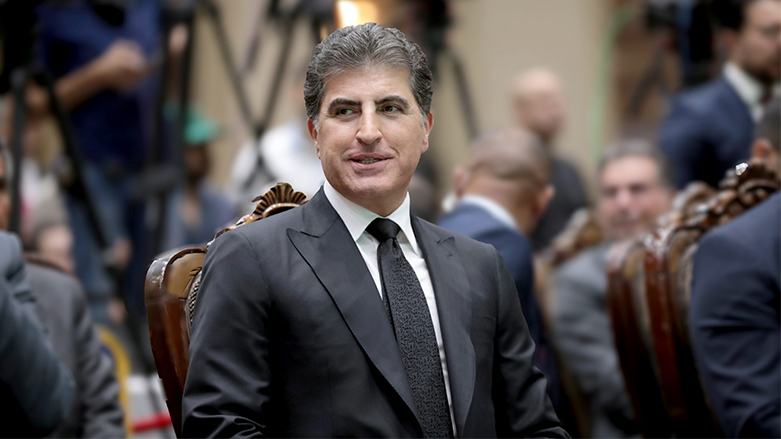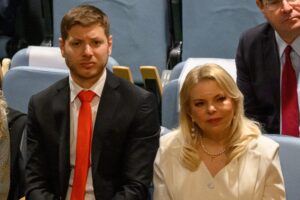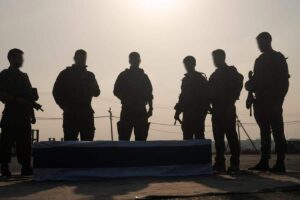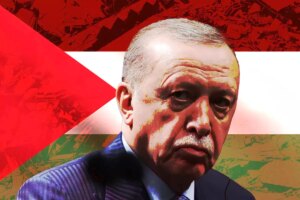
2025-09-28T10:34:07+00:00
font
Enable Reading Mode
A-
A
A+
Jawad Qadir
Fellow at the Institute for Research and Development-Kurdistan
In the volatile landscape of Middle Eastern politics, few leaders
have managed to maintain relevance across such diverse and often competing
interests as Nechirvan Barzani, President of the Kurdistan Region. His
diplomatic approach has garnered attention from regional powers and Western
allies alike, demonstrating a pragmatic yet principled stance that merits
examination.
Strategic Positioning in a
Crisis-Ridden Region
Barzani’s diplomatic approach rests on two fundamental pillars that
have proven both ambitious and practically sound. First, his commitment to
ensuring the Kurdistan Region does not become a proxy battlefield for
international conflicts represents a mature understanding of regional dynamics.
This approach recognizes that the security of neighboring countries—Turkey,
Iran, and Syria—is intrinsically linked to the Kurdistan Region’s own
stability. Second, his assertion of the region’s right to form strategic alliances
while maintaining constitutional obligations to Iraq demonstrates sophisticated
federal thinking.
The recent expressions of goodwill from both Tehran and Ankara
toward the Kurdistan Region’s leadership reflect the success of this balanced
approach. Iran’s official praise for Barzani’s handling of regional tensions
and Turkey’s reliance on Kurdistan Region leadership for Kurdish outreach
suggest that his diplomatic strategy has created genuine value for traditional
adversaries. This is particularly noteworthy given the historical suspicions
these capitals have harbored toward Kurdish autonomy.
Testing Diplomatic Principles
Barzani’s diplomatic credibility was notably tested during Syria’s
recent upheavals and the broader regional conflicts. His response—calling for
restraint rather than opportunism—demonstrated the kind of strategic thinking
that builds long-term trust. Rather than viewing regional crises as
opportunities for Kurdish territorial or political gains, he consistently
warned against the consequences of prolonged conflict. This approach, while
potentially criticized by Kurdish maximalists, has built substantial goodwill
even among previously skeptical regional actors.
His September 2021 speech at the “Iraq, a Tragic Destiny”
conference represents perhaps his clearest articulation of this philosophy. The
speech’s emphasis on citizenship rights, ethnic and religious recognition, and
inter-communal tolerance offers a framework that transcends narrow Kurdish
interests while advancing them through broader regional stability.
Balancing Act: Strengths and
Limitations
The strategic balance Barzani has achieved—serving simultaneously
as a reliable Western ally and acceptable regional partner—represents a
significant diplomatic achievement. His success in maintaining strong ties with
the United States and European Union while addressing Turkish and Iranian
concerns demonstrates sophisticated statecraft. The policy of “inclusion, not
separation” for Kurds across the region supports state sovereignty while
advancing Kurdish rights—a formula that could serve as a model for other
minority-majority relationships.
However, this approach is not without risks and limitations. The
delicate balance requires constant recalibration and depends heavily on
Barzani’s personal credibility and relationships. Any significant shift in
regional power dynamics or leadership changes in key capitals could destabilize
this carefully constructed equilibrium. Moreover, the approach may disappoint
Kurdish constituencies seeking more assertive advancement of national
aspirations.
Regional Impact and Future Prospects
The broader implications of Barzani’s diplomatic approach extend
beyond Kurdish interests. His emphasis on creating “common interests between
the states of the region, the Kurds and other communities on the issue of
security” offers a potential framework for addressing some of the Middle East’s
most intractable conflicts. The principle that minorities should be treated as
“equals, not guests” in their states, while maintaining full constitutional
participation, could inform solutions to various ethnic and sectarian tensions
across the region.
Final words
Nechirvan Barzani’s regional diplomacy represents a pragmatic
evolution in Kurdish political strategy. By prioritizing stability over
maximalist positions and building trust through consistent adherence to stated
principles, he has created space for Kurdish advancement within existing state
structures. While the approach requires constant diplomatic finesse and may not
satisfy all Kurdish aspirations, it has demonstrably improved the Kurdistan
Region’s security and international standing.
The test of this diplomatic strategy will ultimately be its
durability through changing regional circumstances and its ability to deliver
tangible improvements for Kurdish populations across the region. Thus far, the
evidence suggests that principled pragmatism may indeed offer a more
sustainable path than confrontational nationalism in the complex realities of
Middle Eastern politics.





